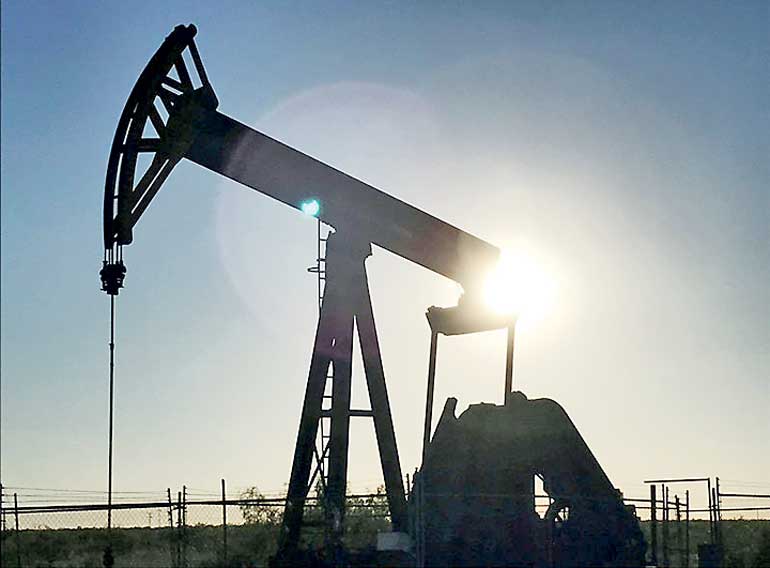Saturday Feb 21, 2026
Saturday Feb 21, 2026
Thursday, 1 March 2018 00:00 - - {{hitsCtrl.values.hits}}

TOKYO (Reuters): Oil prices fell on Wednesday as weak Chinese and Japanese industrial data triggered concerns of an economic slowdown that could lower oil demand, and as an industry data report showed an increase in U.S. crude stockpiles amid soaring output.
U.S. West Texas Intermediate crude was down 31 cents, or 0.5%, at $62.70 a barrel by 0446 GMT, after falling 90 cents in the previous session.
Brent crude was down 40 cents, or 0.6%, at $66.23 a barrel. On Tuesday, Brent fell 87 cents to $66.63.
Traders said oil prices declined on concerns of a slowdown in the global economy after China reported on Wednesday that factory growth in February was at its lowest since July 2016.
China is the world’s second-biggest economy and the biggest importer of oil after overtaking the Unites States last year. Crude oil demand is highly correlated to economic growth.
While China’s week-long Lunar New Year holiday this month disrupted business activity, traders also pointed to tougher pollution rules that curtailed factory output.
In Japan, the world’s third-largest economy, industrial output in January took its biggest tumble since a devastating earthquake in March 2011, highlighting a weakening in demand and a build up of inventory.
In the United States, the world’s biggest oil consumer, rising crude stockpiles weighed on prices.
Data on Tuesday from the American Petroleum Institute showed that crude inventories rose by 933,000 barrels in the week to Feb. 23, to 421.2 million barrels.
Refinery crude runs dropped by 209,000 barrels per day (bpd), the API data also showed, implying a drop in demand for feedstock crude. Gasoline stocks rose by 1.9 million barrels.
Official data from the U.S. Energy Information Administration (EIA) is due out later on Wednesday.
Soaring U.S. production has pressured oil prices at a time when the Organization of the Petroleum Exporting Countries (OPEC) and Russia have reduced output to support prices.
“Climbing U.S. production continues to weigh on the market as traders fear that the OPEC output cuts will be nullified by the rising U.S. output,” said William O‘Loughlin, investment analyst at Australia’s Rivkin Securities.
U.S. crude oil production has risen by a fifth since mid-2016 to more than 10 million bpd.
On Tuesday, International Energy Agency Executive Director Fatih Birol said the United States will likely overtake Russia as the world’s biggest oil producer by 2019.
The United States overtook Saudi Arabia, the world’s top crude oil exporter, late last year.